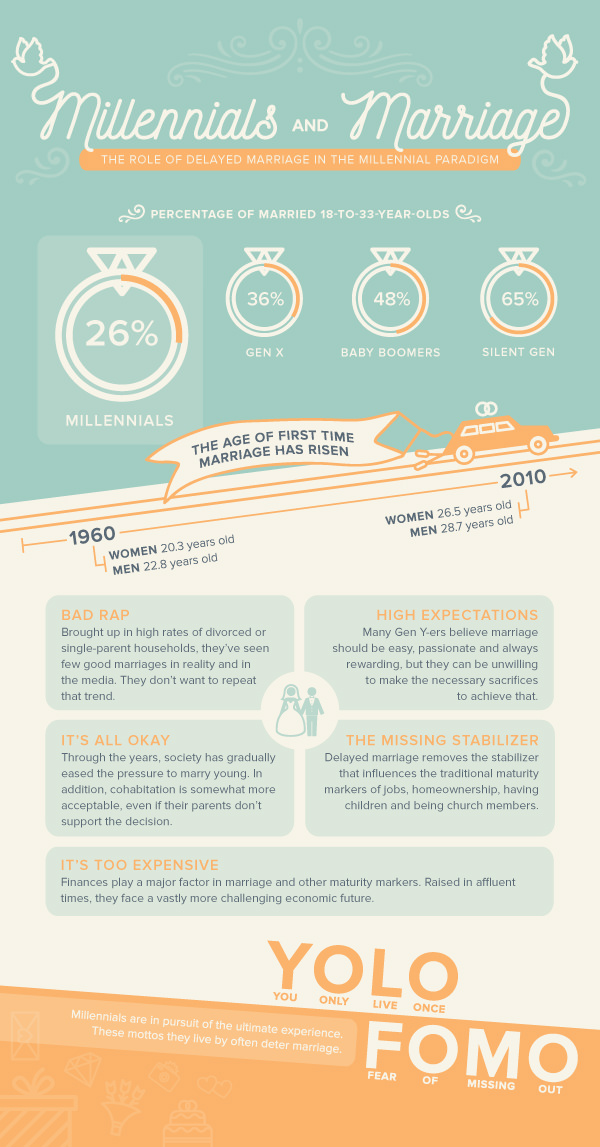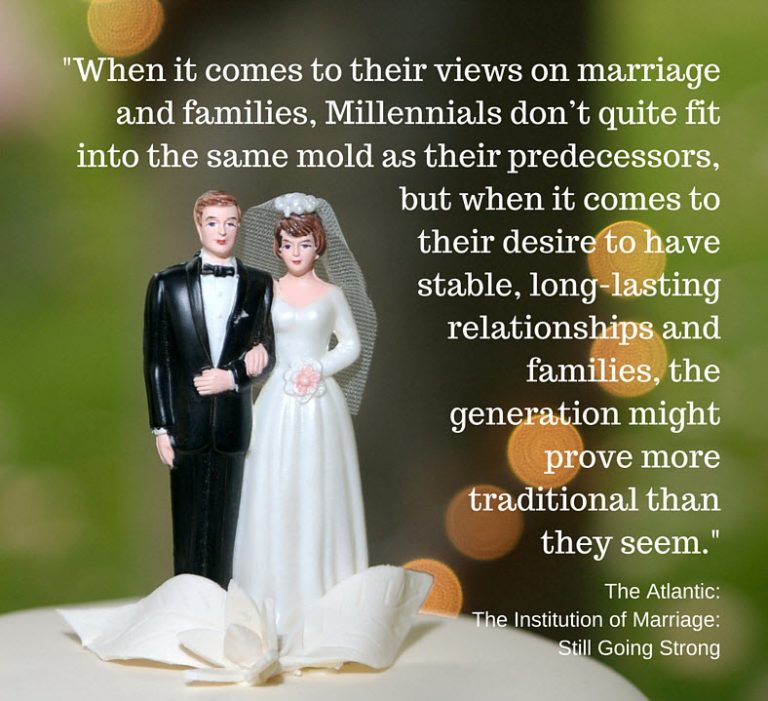This is the final segment of our millennial series. (See Part 1, Part 2 and Part 3.)

Millennial data pinpoints to marriage as a critical juncture of adulthood that, like many other aspects of maturity, is being postponed.
In the context of millennials and the church, marriage is unique in the set of adult markers (that traditionally include college, career, church membership and child-rearing) in that it reflects both cause and effect. The millennial zeitgeist often delays marriage for a variety of reasons, which then detours young people onto non-traditional paths, which then create additional barriers to connection with a church.
Let’s look at some of the data:

While no church-wide, community-wide or national campaign is going to bring millennials back to church in droves, it’s clear that we must address the cultural factors that created the current conditions. Marriage seems central to this focus.
We already know that marriage affects church health, and are happy to see that many churches have been providing powerful resources to strengthen their members’ marriages and families. We need to continue this initiative!
Marriage Discipleship
Singles are constantly analyzing marriages (in real life and in media) and—more often than not—concluding hopelessness and perpetuating unrealistic expectations. What if couples with strong marriages focused on mentoring young people (single and married, in your church, in your neighborhood, in civic organizations)?
Nothing stands out in this culture like a long marriage. Young people will ask “How did you do that?” That gives marriage more value than it may ever have had as an evangelistic tool, along with the power it has always had to form the building blocks of healthy families, churches and communities.
Wedding Assistance
Recently a church in the Dallas area made an offer to every unwed couple in the congregation who was living together. They set aside a day a month or two away—divided into 2-hour slots—for free weddings. They decorated the sanctuary, provided the pastor’s services, and hosted a simple reception. The entire day was filled with wedding ceremonies! It’s a great opportunity to get couples plugged into marriage classes or groups, as well. It turns out, some people had just gotten used to putting off their wedding, for financial or other reasons.
Salt and Light
As we end this series, it’s important to remember that the church has always been called to be counter-cultural. Nowhere is that more powerful or critical than in the area of marriage. Many millennials do want to be married, and in that, there is hope…and a task for the church!




